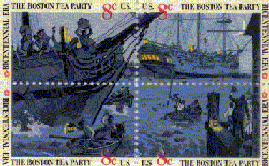
History

There are many theories about the discovery of tea. According to tradition, tea was discovered by the Chinese Emperor, Shin Nong in 3000 BC. The story goes that a servant to the Chinese Emperor was boiling some water to drink as he and the Emperor sat under a wild tea tree. A leaf from the tree fell into the boiling water and the Emperor decided to try the resulting brew. Another later legend describes how tea was found in the third century AD by an old woman who sold the drink at the market and gave the proceeds to the local orphanage.

The discovery of tea has not been definitively established by historians, but the first authenticated references to it in China start from the fourth century AD and by then its medicinal properties were well known. By the fifth century AD tea was no longer considered as just a medicine and people had started to drink it as a healthy and refreshing drink. By the time of the Tang Dynasty (the sixth to ninth centuries) tea had become so popular that it became China's national drink.
The first records of tea outside China were by the Arabs in 850AD, who are amongst those estimated to be the first to bring tea to Europe, with their shipments starting in the middle of the 16th century. However, the Portuguese and Dutch claim to have brought the idea of tea drinking to Europe as early as 1515, when they set up a shipping route to China. Regular shipments of tea had been set up by the beginning of the 17th century to France, Holland and the Baltic coast.

It is not known exactly when tea was first brought to Britain. A charter was granted by Elizabeth I to the East India Company and they became responsible for importing goods from outside Europe. Ships were recorded reaching Britain in 1637, but no records of tea dealings with China exist before 1644. The first public sale of tea was by the merchant Thomas Garway in 1657. He sold tea in dry and liquid form from his shop in Exchange Street in London. Advertisements for tea were put up which increased its popularity. By 1700, it was sold in more than 500 coffee houses in London. By the middle of the 18th century, tea had become so popular that it replaced gin and ale as Britain's most popular drink. The government became worried about the loss of revenue from the sale of alcohol and as a result in 1676, Charles II imposed heavy duty on the sale of tea and coffee, and housekeepers were required by law to hold a license to sell it. By the middle of the 18th century, tax on tea had reached 119%; as a consequence tea smuggling into Britain began in order to avoid paying duties. Taxes on tea remained until 1784, when it was reduced by the Commutation Act to counter the increase in smuggling.
The tax duties imposed on tea became a bone of contention which led to the Boston Tea Party, a significant event that was an early example of the rebellions which ultimately resulted in American independence.

The
Tea Act of 1773 meant that the British government could impose taxes on
imported products like tea. On 16th December 1773 30-60 men boarded ships
belonging to the British East India company, smashed the tea cargo and
threw it overboard, rendering it worthless and starting a string of related
rebellions against British rule and the lack of American representation
in the British Parliament.
